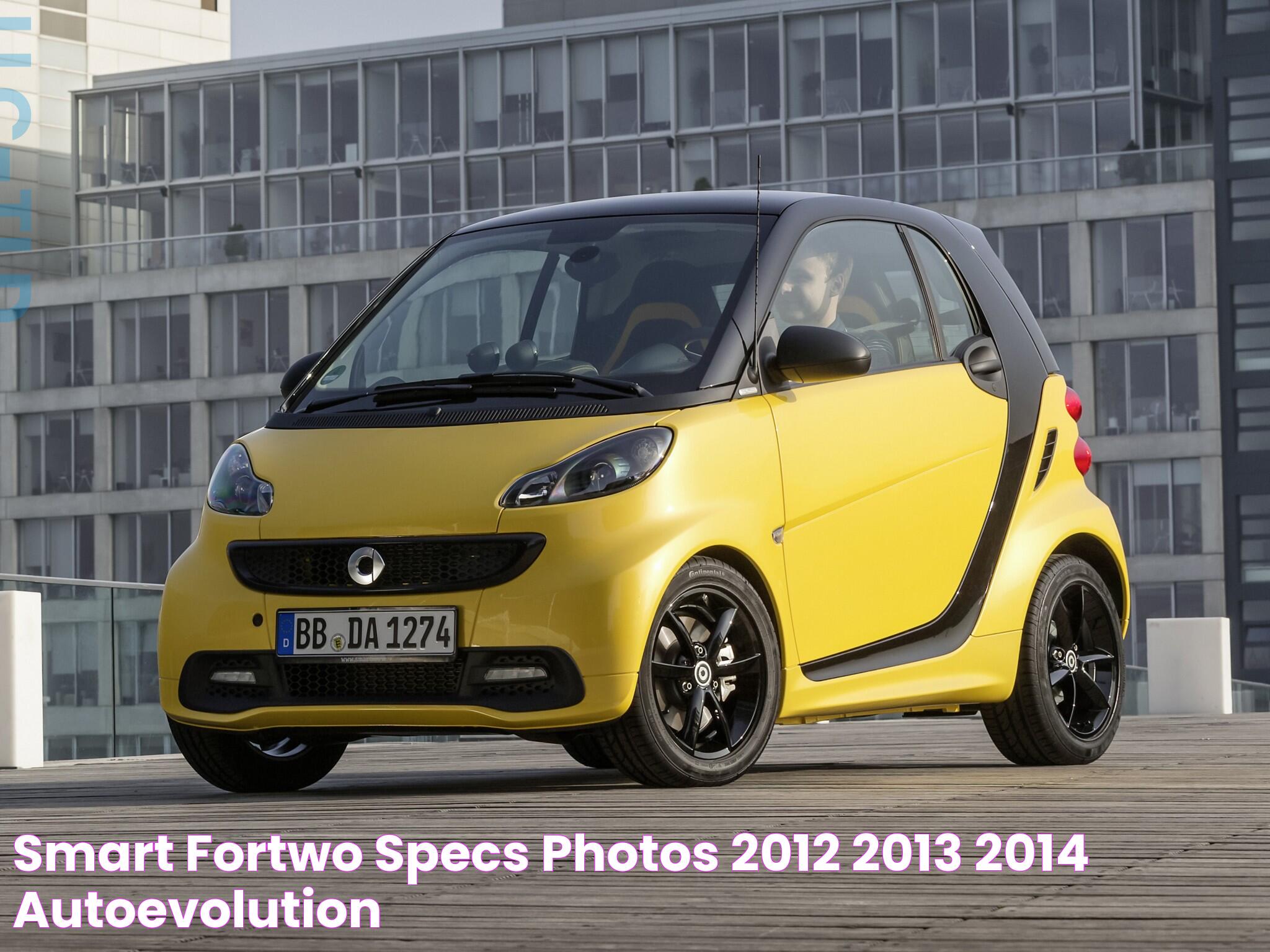Smart Car Technology: The Future Of Urban Mobility

The automotive world is transforming rapidly, and at the forefront of this evolution is the "smart car." These innovative vehicles are redefining transportation by combining cutting-edge technology, sustainability, and convenience. From self-parking systems to voice-activated controls, smart cars are no longer a futuristic dream but a reality that's shaping how we move in urban environments.
As cities grow denser and environmental concerns heighten, the need for efficient and environmentally-friendly transportation solutions has never been more critical. Smart cars address these challenges by offering compact designs, fuel efficiency, and advanced safety features, making them ideal for modern urban life. With their ability to integrate seamlessly with smart city infrastructures, these vehicles are setting a new standard for connected mobility.
But what exactly makes a car "smart"? In this article, we’ll dive into the world of smart cars, exploring their features, benefits, and how they compare to traditional vehicles. We’ll also discuss their impact on the automotive industry, the challenges they face, and what the future holds for this revolutionary technology. By the end, you’ll have a comprehensive understanding of why smart cars are more than just a trend—they’re the future of transportation.
Read also:Luxury Redefined The Fairmont Grand Del Mar Resort In San Diego
Table of Contents
- What is a Smart Car?
- How Do Smart Cars Work?
- Key Features of Smart Cars
- What Are the Benefits of Smart Cars?
- Smart Cars vs. Traditional Cars
- Are Smart Cars Environmentally Friendly?
- Smart Car Safety and Security
- Can Smart Cars Integrate with Smart Cities?
- Affordability and Costs of Smart Cars
- Top Smart Car Brands
- Challenges Facing Smart Cars
- Future of Smart Cars
- Frequently Asked Questions
- Conclusion
What is a Smart Car?
A smart car is a technologically advanced vehicle designed to prioritize efficiency, connectivity, and user convenience. Unlike traditional cars, smart cars are equipped with a range of intelligent systems such as autonomous driving, real-time navigation, and integrated infotainment platforms. These features not only enhance the driving experience but also make these vehicles safer and more efficient.
Characteristics of Smart Cars
Smart cars can be defined by several unique characteristics:
- Compact size, making them ideal for navigating crowded city streets and parking in tight spaces.
- Advanced driver-assistance systems (ADAS) for improved safety and convenience.
- Connectivity features like Wi-Fi, Bluetooth, and smartphone integration.
- Electric or hybrid powertrains for reduced environmental impact.
How Smart Cars Differ From Regular Cars?
Unlike regular cars, smart cars integrate advanced technologies that allow them to communicate with other vehicles, infrastructure, and even pedestrians. This level of connectivity enhances traffic flow and reduces road congestion. Moreover, their smaller size and energy-efficient operation make them a more sustainable choice for urban areas.
How Do Smart Cars Work?
Smart cars operate through a combination of hardware and software systems designed to improve driving efficiency and safety. These systems include sensors, cameras, radar, and artificial intelligence (AI) algorithms that work together to process real-time data.
Technological Components
Some of the core components of smart cars include:
- Sensors: Detect objects, road conditions, and obstacles.
- Cameras: Provide a 360-degree view for better situational awareness.
- AI Algorithms: Analyze data and make decisions, such as when to brake or accelerate.
- Connectivity Modules: Enable communication with other vehicles and infrastructure.
What Role Does AI Play in Smart Cars?
Artificial intelligence is at the heart of smart car technology. It powers features like autonomous driving, voice recognition, and adaptive cruise control. By continuously learning and adapting, AI systems make driving smarter, safer, and more intuitive.
Read also:Apple Plus The Ultimate Platform For Entertainment And Innovation
Key Features of Smart Cars
Smart cars come with a host of features that set them apart from traditional vehicles. These include:
1. Autonomous Driving
Many smart cars are equipped with self-driving capabilities, allowing them to navigate roads with minimal human intervention. This feature relies on advanced sensors, cameras, and AI algorithms.
2. Advanced Safety Systems
From automatic emergency braking to lane-keeping assist, smart cars prioritize safety through advanced driver-assistance systems (ADAS).
3. Connectivity Options
Smart cars are designed to stay connected, offering features like Wi-Fi hotspots, smartphone integration, and over-the-air software updates.
4. Eco-Friendly Features
Most smart cars are either fully electric or hybrid, making them an environmentally responsible choice.
5. Smart Parking
With features like self-parking and parking assist, smart cars make finding and securing parking spaces a breeze.
Frequently Asked Questions
Here are some common questions about smart cars:
- What is the average cost of a smart car? Prices vary widely but typically range between $20,000 and $40,000, depending on the model and features.
- Are smart cars suitable for long-distance travel? While they excel in urban environments, many models are also capable of long-distance travel.
- What is the lifespan of a smart car? With proper maintenance, a smart car can last as long as traditional vehicles, typically 10-15 years.
- Do smart cars require special maintenance? Maintenance requirements are generally similar to those of traditional vehicles, although electric smart cars may need less frequent servicing.
- Can a smart car drive in bad weather? Yes, most smart cars are equipped with sensors and systems that perform well in adverse weather conditions.
- Are smart cars safe? Yes, smart cars are designed with advanced safety features to protect passengers and reduce accidents.
Conclusion
Smart cars are revolutionizing the automotive industry by combining technology, sustainability, and convenience. As they continue to evolve, these vehicles are set to play a crucial role in shaping the future of urban mobility. Whether you're considering buying one or simply curious about their capabilities, it's clear that smart cars are more than just a trend—they're the driving force behind a smarter, greener world.
For more information on smart car technologies and trends, visit Consumer Reports.
Article Recommendations

